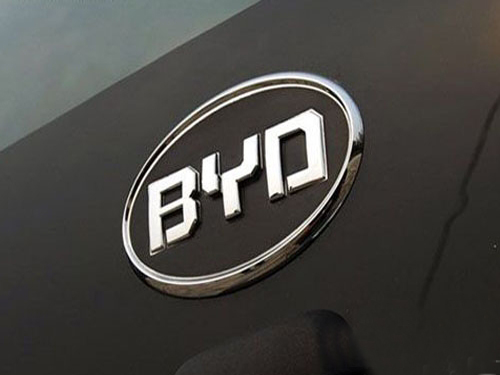 BYD, supported by US billionaire Warren Buffett, explained its brand as "Build Your Dreams," which "achieves your dreams," but in the past year, it had many dreams. All turned into illusions.
BYD, supported by US billionaire Warren Buffett, explained its brand as "Build Your Dreams," which "achieves your dreams," but in the past year, it had many dreams. All turned into illusions. The company, headquartered in Shenzhen, produces both traditional cars and electric cars. Initially, the company set a sales target of 800,000 last year and then lowered it to 600,000. However, despite the rapid growth of the Chinese auto market, the company still failed to achieve its goals. BYD repeatedly claimed that its electric vehicle exports to the United States are just around the corner, but the plan is pushed again and again.
After rapidly expanding its dealer network and expanding coverage to some of China's smallest cities, BYD changed its pace. According to Chinese media reports, the company is currently planning to lay off two-thirds of its 2,600-plus sales team. Several senior executives have resigned, and the company’s net profit for the first half of 2011 fell 89% from the same period last year.
Now many people are talking about whether the dream has been shattered for BYD, and even for the entire Chinese electric vehicle industry. Or can China still bypass BYD under the leadership of BYD and lead the world in the field of alternative fuel vehicles?
In 1995, BYD, which started with the production of batteries, built its first self-owned brand of traditional energy vehicles in 2005. Four years later, its traditional compact car sales have ranked first in the country. Company founder Wang Chuanfu had predicted that by 2015, BYD will become the world's largest car company.
Bill Russo, president of Synergistics Beijing, and former China president of Chrysler, said: "BYD is ruined in its own public relations. They always exaggerate expectations, but they can't achieve it."
BYD did not respond to the press request for comment.
Roland Berger (Roland Berger) Automotive Consultant Zhang Junyi of Shanghai stated that "in the absence of a detailed analysis of the market," BYD expanded its dealer network and added more than 2,000 sales staff, many of whom had previously done In other industries, I have never sold a car.
He said: "Once your dealer has problems, you will certainly have problems."
All of BYD's problems have now involved its production of conventional cars driven by internal combustion engines. In the field of traditional cars, which has been around for more than 100 years, BYD is only a newcomer.
BYD's pure electric car has just started selling to individual users. On the 26th of this month, the E6 personal version of the electric car began to be sold in Shenzhen. However, part of the F3DM dual-mode electric car has been sold to the car rental company. Shenzhen also has a taxi company using E6.
What made Buffett excited was BYD's alternative fuel vehicle business. However, this business also encountered some problems. According to industry insiders who understand the company's situation, BYD has been struggling with product consistency and quality control issues, including electric vehicle batteries. The production and manipulation of car batteries is much more complicated than the small batteries used in mobile phones and laptops.
An executive from a competitor company who knows quite a bit about BYD said: “How can you just come up with a mediocre internal combustion engine product and a mediocre battery product, just trying to create a mediocre electric vehicle? Don't say what high-performance electric cars do?"
The Chinese government has begun to reflect on its previous strategy of paying attention to electric cars. This is undoubtedly an added burden to BYD. China had previously planned to leapfrog an entire generation of traditional engine technologies and instead develop electric vehicles in order to obtain a first-mover advantage over the West.
However, the initial timetable dragged on and on and made the Chinese government decision-makers frustrated. They tend to support all technologies that improve fuel efficiency, not just car batteries.
Despite this, auto industry analysts said that they may initially exaggerate the potential of BYD, but now exaggerating its problems is also wrong.
Luo Wei said: "To solve BYD's problems, we need to do a lot of things, but I think it is not irreversible."
Another analyst said that BYD's management has proved that he is "not completely incompetent." He said they only need a viable long-term strategy, and overall, "its brand is not bad."
Dieter Zetsche, chief executive of Daimler, recently defended BYD, claiming that reports of its decline were somewhat overstated. Daimler and BYD established a technology joint venture to develop electric vehicles.
Cai Che told the Frankfurt Review Rundschau that BYD could not “make a miracle†as it had previously claimed, but its management was not the kind of “dolphic generation†that the outside world recently satirized.
Guo Guangchang, founder and chairman of Fosun, China’s largest private enterprise group, recently told this newspaper: “BYD is a good company: but even a good company can make mistakes.â€
Cnc Machining Parts Precision,Cnc Machining Parts Aluminum,Cnc Machining Parts Machined Aluminum,Cnc Turning Parts
Ningbo Yinzhou Leisheng Machinery Co.,Ltd , https://www.thundermach.com